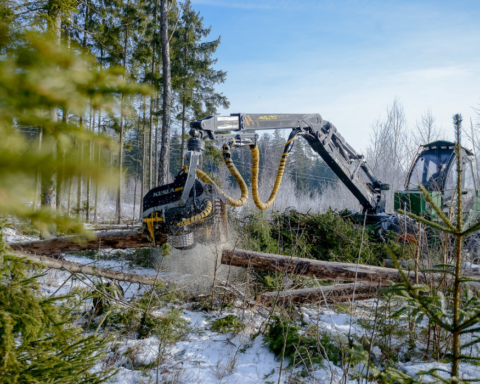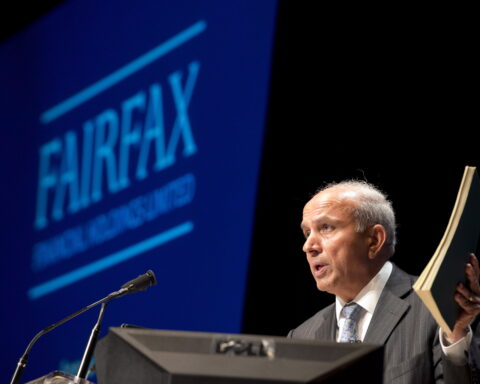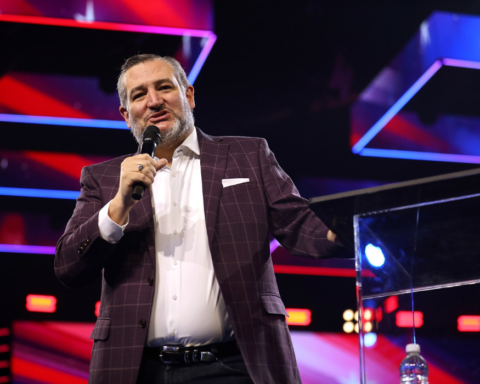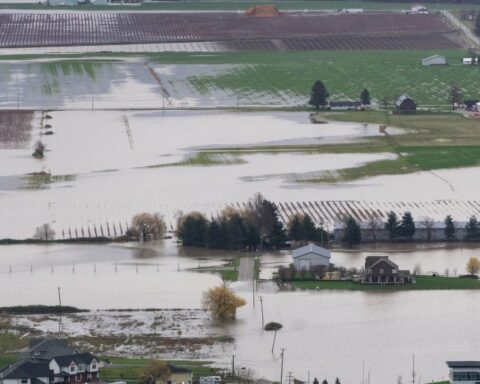In the fourth year of her accounting degree at McGill University, Sarah Keyes walked into the classroom of a mandatory credit course called The Social Context of Business. When she walked out that day in 2009, she wasn’t sure she still wanted to be an accountant.
The professor – one Louis Chauvin – was a standout in McGill’s Desautels Faculty of Management. Wearing nubbly woolen sweaters and a full grey beard, he started each class with a brief meditation before launching into the subject at hand: the social and environmental devastation wrought by the corporate world the students were clamouring to enter.
Chauvin framed the most urgent issues facing the planet – climate change, waste, pollution, slave and child labour – as accounting failures. Nowhere did these by-products of economic growth appear on balance sheets. He cited the old accounting adage “What gets measured gets managed” and made it clear that the converse also applies.
As a self-described impact-driven millennial, Keyes experienced a moment of existential panic. How would she reconcile her determination to do good in the world with a system so singularly focused on profit and growth? After receiving her designation as a chartered professional accountant (CPA) in 2013, Keyes entered the profession with one part trepidation, nine parts determination.
As it turns out, her timing was perfect. Now the CEO of ESG Global Advisors, a boutique management consultancy in Toronto that advises companies and investors on environmental, social and governance (ESG) reporting and strategies, she has seen her team triple in the last year and a half. “I would not have stayed the course in this profession had I not felt that I was making a difference,” she says.
In the last two decades, accounting has been transformed by the shift in corporate culture that has seen corporate social responsibility move from the margins to centre stage, and sustainability migrate from the marketing office to the banner flying over the entire operation.
While the scope of work – reporting, auditing, risk assessment and assurances – hasn’t changed, the innards have. Accountants are being asked to measure different things, ask different questions and think in different ways. The bookkeeping that used to form the meat and potatoes of accounting – recording inputs and outputs, tallying profits and losses – now represents a fraction of the work, and the fraction that is doomed to fall, sooner or later, to artificial intelligence. “Integrated” or “sustainability” accounting, as the profession’s more recent iteration is being called, may in fact prove to be its salvation, demanding more nuanced, ambiguous and qualitative thinking: less about accounting for companies’ financials than about demonstrating their accountability – or lack thereof – to all stakeholders, including the planet.
Of course, sustainability accounting is as prone to manipulation as any other form of the practice. But a survey of the current landscape suggests that there are more dreamers than schemers – and that many of industry’s most ambitious envelope-pushers are women.
For someone like Keyes, the work feels incredibly relevant and exciting. Nonetheless, like many in her profession and despite accolades – in 2022, Keyes was named a fellow by CPA Ontario, as a “trailblazer” in the worlds of ESG and sustainability – she doesn’t want to be called a warrior.
The rise of activist accountants
The “warrior accountant” moniker has been gaining currency ever since British journalist Gillian Tett suggested, in a 2018 column in the Financial Times, that accountants, once typecast as enablers of capitalist exploitation and tax avoidance, might in fact be climate saviours: that “a new breed of activist warrior accountants could be the biggest revolutionaries of all,” as Tett put it.
Keyes sees a danger in overstating her profession’s potential impact. “We are one piece of a big puzzle,” she says, estimating that two-thirds of the investment required to achieve net-zero by 2050 will come from the private sector. Accountants can help create transparency and guide decision-making within that sector, but Keyes says the kind of transformational change required to meet climate goals will require all hands – regulators, investors and policy-makers included – on deck.
Susan Todd agrees. A pioneer of sustainability accounting (and living proof that activism in the profession is nothing new), she is impatient to see the practice fully bear fruit. In the “heady” early days, she was convinced that once the best performers were exposed, capital would naturally flow to them. But having worked as a B.C.-based sustainability consultant for the better part of three decades, the president of Solstice Sustainability Works realizes that it’s not that straightforward.
“You can’t have successful companies in a failed world,” she says, citing a market that lacks “sophistication” and analysts too fixated on short-term financial risks. For her, the term “non-financial disclosures,” often used to describe environmental and social performance, is evidence that the actual value of these factors is still not recognized: that people don’t fully grasp that “these chickens will come home to roost.”
But there’s no question that things have come a long way since 1997, when Todd was contracted by Vancity to conduct the credit union’s first ever “social audit.” Assessing the co-op’s social responsibility performance, Todd drew on what she had previously considered discrete skill sets – her CPA designation and experience as senior audit manager for KPMG on the one hand and a master’s degree in resource and environmental management from Simon Fraser University on the other.
When I started, I had to explain to companies why they should care about ESG. Now they see reporting as the tail that wags the dog.
– Alyson Slater, head of sustainable investments, Manulife
“They didn’t want it done in a fluffy way,” Todd says of her Vancity employers. She found herself burrowing back into her textbooks, returning to first principles as she tried to come up with a meaningful way to measure social impact.
Todd wasn’t alone. In the 1990s, progressive economists were pushing for what they called full-cost accounting: a triple bottom line that took profits, people and the planet into consideration. But as admirable and important as the project sounded, the tools were missing. Which factors to measure, and what weight to assign to each one? How to quantify labour practices or policies of diversity and inclusion? What value to put on biodiversity loss or water contamination?
Sustainability standards have come a long way since then, an evolution that Alyson Slater has witnessed firsthand. In 2001, armed with a master’s degree in environmental studies from the University of British Columbia, she began working for the newly formed Boston-based Global Reporting Initiative (GRI). Founded in the wake of the 1989 Exxon Valdez oil spill, the GRI grew out of conversations between NGOs, labour unions and ethical investors who were determined to hold corporations responsible for their environmental impacts. Slater helped to formulate the second version of the GRI’s sustainability reporting guidelines, published in 2002.
GRI now produces the most widely used sustainability reporting standards in the world. Over the span of her career, Slater, who has worked on financial-inclusion and poverty-reduction projects in Asia and is now the Toronto-based head of sustainable investments for Manulife, has seen a sea change in attitudes.
“When I started, I had to explain to companies why they should care about ESG,” she says, adding that many had “transparency jitters” about exposing the dark underbellies of their operations. “Now they see reporting as the tail that wags the dog, driving better performance and reducing risk.”
Slater says that most companies, no longer afraid of standards, are now pushing for better ones. They’re coming. In April, Slater was named to the Canadian Sustainability Standards Board, a national body tasked with ensuring that the new suite of reporting frameworks being developed by the Frankfurt-based International Sustainability Standards Board (ISSB) are adapted to the Canadian economic context. Provincial regulators will adopt the standards, once finalized, and roll them out across the country over the coming years. Unlike the GRI standards, which are voluntary, the new ISSB standards are expected to become a mandatory part of the reporting framework Canadian companies use.
Minding the audit gap
But standards alone won’t save the day. In the U.K. and Europe, where more rigorous reporting standards are already in place, there’s evidence to suggest that the large tax and accounting firms hired to prepare ESG reports are conflicted; if they’re too rigorous in their assessments and irritate management, they risk losing out on further consulting contracts. Recent reports from the U.K.’s Financial Reporting Council have pointed to widespread disclosure failures, prompting the council to issue a Statement of Intent on ESG that provides further guidance to accountants. Likewise, the European Central Bank recently reported that “banks do not yet sufficiently incorporate climate risk into their stress-testing frameworks and internal models.”
A damning October 2022 report by the London-based Carbon Tracker think tank found that 98% of 134 companies responsible for 80% of corporate industrial greenhouse gas emissions failed to adequately incorporate climate-related impacts into their financial statements. None of the companies – which are in the high-emissions fossil fuel, mining, manufacturing, automotive and technology sectors – met the measurement requirements of Climate Action 100+, the global investor-led initiative promoting corporate action on climate change. Barbara Davidson, the report’s lead author, attributed the failure to forward-looking assumptions that ignore climate impacts, resulting in statements that “overstated assets, understated liabilities and overstated profits.”
You can’t have successful companies in a failed world.
– Susan Todd, president, Solstice Sustainability Works
Net-zero aspirations have also opened up new avenues for creative accounting. Sectors unable to eliminate emissions in the near term will rely on “negative emissions” to deliver what looks like a net-zero balance sheet. In 2021, for instance, oil and gas giant Shell announced that it would be growing its gas business by 20% while still aspiring to climate neutrality: offsetting additional emissions with an expanded network of EV charging stations and carbon capture projects like reforestation. Critics panned the plan, saying it relied on technologies and plantable land that simply don’t exist.
But overall, the trend in accounting is transformative. Jessica Fries is CEO of Accounting for Sustainability (A4S), an initiative established in 2004 by then–Prince Charles to bring the financial and sustainability communities together to drive change. She has seen it happen before her eyes. While she started her accounting career as a “specialist” in sustainability, Fries now operates in a world where it is part of the day to day.
It’s a world that she says is in dire need of the hybrid mindset that bridges finance and sustainability and that offers unprecedented leadership opportunities for accountants. Today, Fries says, “accountants can drive sustainability into the heart of organizations.”







